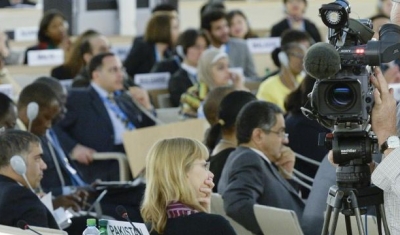Roundtable Discussion on Governmental Perspectives on the Interaction of Rights and Beliefs in Multi-Religious Societies
Event


Noah Holm, Unsplash
Freedom of religion or belief is increasingly both under strain and subject to manipulation. This fuels populism, violent extremism and xenophobia, which also exacerbates pushback against human rights from different angles. Countering these trends requires deeper reflection and closer collaboration between faith-based actors, academics, governments and United Nations (UN) human rights mechanisms.
This event – co-organized with the Office of the UN High Commissioner for Human Rights – will discuss examples of putting the Faith for Rights Toolkit into practice.
This event is set within a full week of peer-to-peer exchanges of academics, civil society organizations, diplomats, international human rights mechanisms, students and UN entities, taking stock of the implementation of the 2012 Rabat Plan of Action and 2017 Beirut Declaration on ‘Faith for Rights.
Welcome
- Gloria Gaggioli, Director, Geneva Academy and Adjunct Professor, University of Geneva Law Faculty
Moderation
- Ibrahim Salama, Chief, Human Rights Treaties Branch, OHCHR
Panelists
- Ahmed Al-Dawoody, Legal Adviser for Islamic Law and Jurisprudence, International Committee of the Red Cross and part of the Geneva Academy Faculty
- Fernand de Varennes, UN Special Rapporteur on minority issues
- Reem Alsalem, UN Special Rapporteur on violence against women
- Nazila Ghanea, UN Special Rapporteur on freedom of religion or belief
- Ahmed Shaheed, former UN Special Rapporteur on freedom of religion or belief
- Nahla Haidar, Vice-Chairperson, UN Committee on the Elimination of Discrimination against Women
- Mahjoub El Haiba, Member, UN Human Rights Committee









